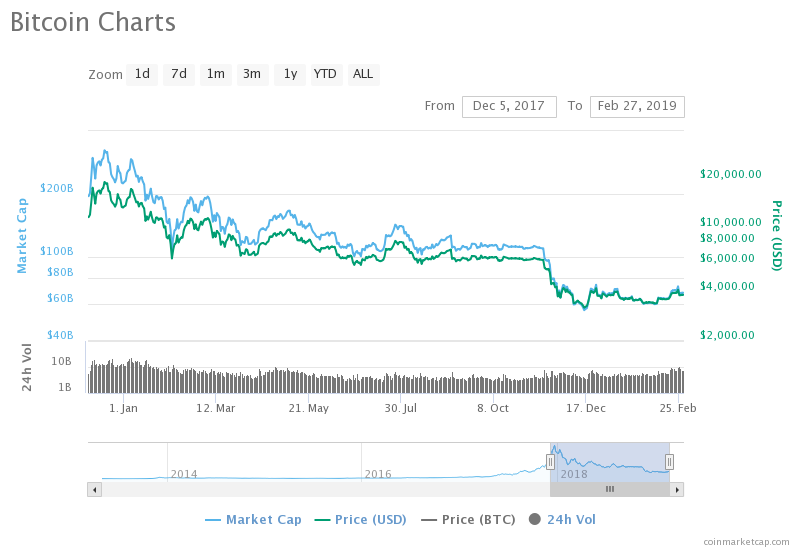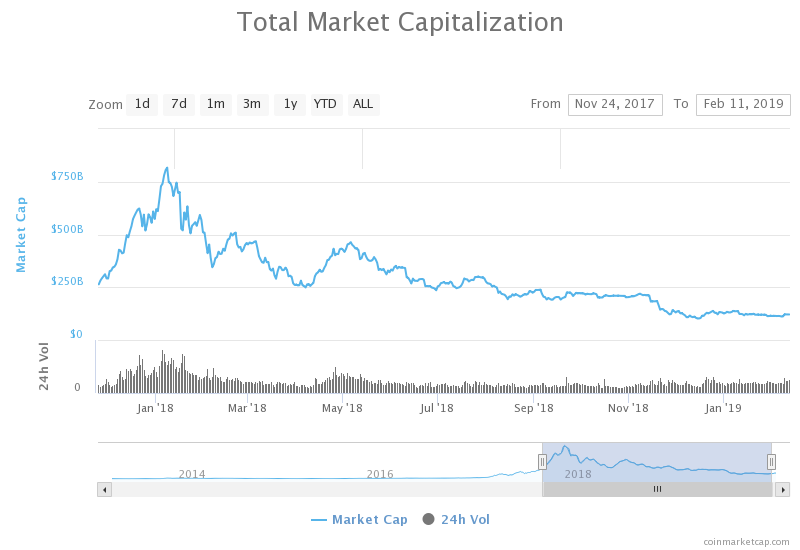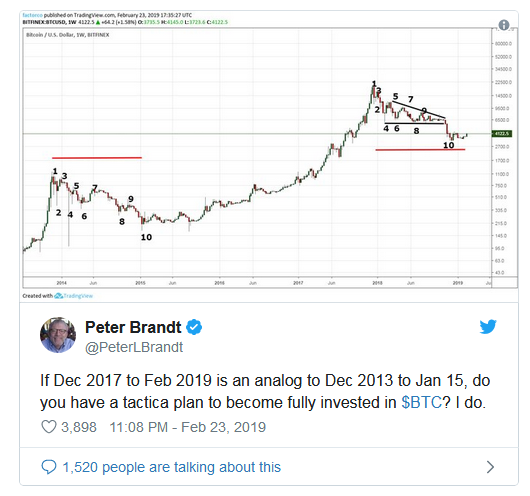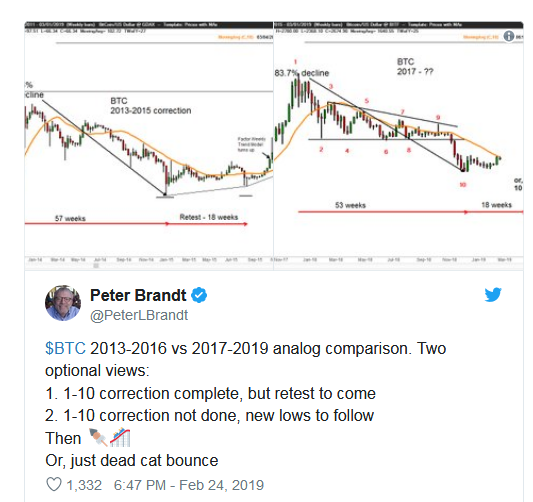Seasoned investors utilizing historical evidence have started to speculate that Bitcoin could embark on another bull run, just like it did after the 2014-2015 bear market. However, we first might have to witness true capitulation.
The first multi-year bear market was sparked by a series of negative news surrounding Bitcoin (BTC). First, there was the seizure of The Silk Road, a darknet market that accepted Bitcoin as a means of payment. Sheep Marketplace, a Tor-based platform that had briefly replaced Silk Road, soon followed before losing 5,400 bitcoins due to a ‘vulnerability’ in the code. Users suggested that the owners actually held around 40,000 BTC. Coincidentally, on the busy Bitcoin mixers, evidence was found that somebody was trying to launder 96,000 BTC — worth around $100 million at the time. Eventually, the operators of Sheep Marketplace had no option but to shut down the platform.
During the same period, the People’s Bank of China banned financial institutions from handling Bitcoin transactions, citing money laundering and financial stability ‘disruption.’
The most significant blow, however, came on Feb 28, 2014, when Mt. Gox — the largest cryptocurrency exchange at the time — filed for bankruptcy after 850,000 bitcoins were stolen from the exchange. The heist would be the largest the cryptocurrency market has seen to date. Mt. Gox CEO Mark Karpeles was arrested and the case has been dragged through court for years as users sought compensation.
Over the next 14 months, the price of Bitcoin would go from a peak of $1,242 recorded at the end of November 2013 to almost $200 by the start of 2015.
2018: Painfully Similar to 2014
From that point on, Bitcoin began a slow but steady rise.
At the beginning of 2017, Bitcoin was trading at $900. A series of positive news, including Japan recognizing Bitcoin as a means of payment, plus growing awareness around the cryptocurrency market as a whole triggered a massive bull run. By December of 2017, the price of Bitcoin reached an all-time high of almost $20,000.
Since then, Bitcoin and the other cryptocurrencies have witnessed a steady reversal in fortunes.

Another spree of thefts and ‘exploits’ plagued the market as a whole. According to CipherTrace’s yearly report, bad actors stole $1.7 billion worth of cryptocurrencies in 2018, alone.
There were six exchange hacks totaling around $900 million in funds stolen. 2014 was the only other year with such a high number of exchange hacks. A new top five emerged as a result, with three new 2018 contenders ‘threatening’ the likes of Mt. Gox as the biggest cryptocurrency heist of all time.
The result was more than obvious: Bitcoin lost over 80 percent of its value. The other major cryptocurrencies followed the same path and plunged to values that are 90 percent to 95 percent lower than their all-time highs.

Accumulation Phase, Anyone?
Nevertheless, the past few months have been much more stable for Bitcoin. The price ranged from $3,500 to $4,000. Now, some experienced traders are speculating that the number one cryptocurrency has already reached the bottom.
Peter Brandt, a user of classical charting principles and an experienced commodity trader, is one of those who thinks that we could be in for another bull run.
Don’t get your hopes up, though. Based on his analysis, we will have to wait a year or two before the bulls are unleashed.

If history does repeat itself and Bitcoin is currently in the tenth period, then several retests of the $3,000 to $3,500 range will follow in the next months.
If Brandt’s so-called 1-10 correction is not yet finished, then new lows are just around the corner.

In other words, Bitcoin could plunge even further to below $3,000 — only to bounce back up in an accumulation phase that could last from several months to a couple of years.
The similarities of the 2018 crash with its 2014 equivalent (obviously, at a different scale) are there. To fully embrace Brandt’s technical analysis, the next several months have to tell the same story as 2015. Which means the cryptocurrency market may have not witnessed true capitulation just yet.
